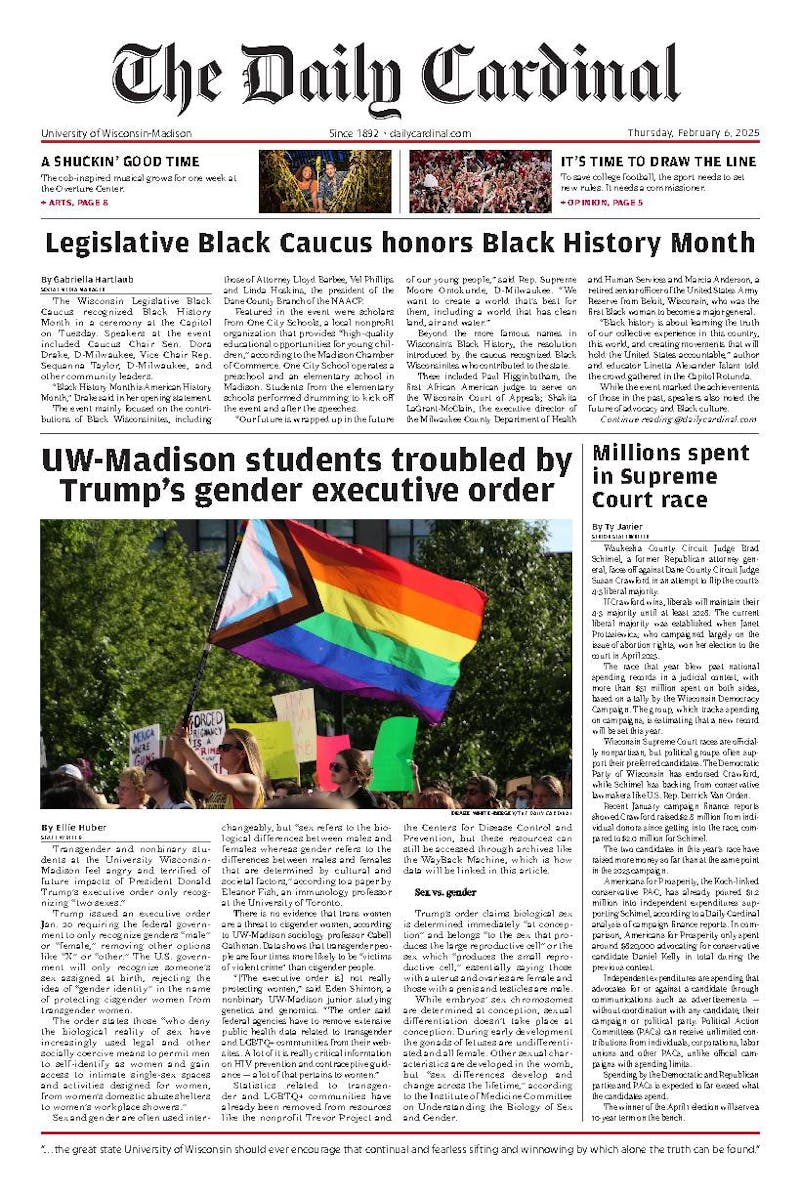After police grabbed his forearm, indicating where he would receive a lethal injection if he did not cooperate, Chris Ochoa said he was ready to admit to anything—even if it meant spending life in prison for a murder he did not commit.
Ochoa went to prison in Austin, Texas, in 1988. It took 12 years and help from a UW-Madison Law School program to reverse the wrongful conviction. The program, the Wisconsin Innocence Project, recently received approximately $1 million in grant money, allowing it to continue to help wrongfully convicted inmates like Ochoa.
Ochoa would later graduate from Wisconsin's law school and lend his experience to the program. But despite these successes, his road to freedom was not easy.
Weeks before Ochoa's arrest, a Pizza Hut waitress was raped and murdered. So when Ochoa, then a 19-year-old honors student, entered the restaurant with his intoxicated roommate, employees immediately went on the alert. Their suspicion increased when Ochoa's roommate asked questions about the murder, leading them to report Ochoa and his roommate to the police.
Ochoa remembered the interrogation clearly: ""A Hispanic detective walked in. He slammed his fist on the table and looked at me. He said, ‘They call me the boogeyman.' He was the bad cop.""
While there was also a ""good cop,"" Ochoa said neither were on his side.
""[They] said ‘if you know something [about the murder], and you don't tell us, we can charge you with capital murder and you'll get the death penalty,'"" he said.
According to Ochoa, after denying him an attorney, the detectives thoroughly interrogated him. They believed Ochoa's roommate committed the murder and Ochoa was an accomplice, so they encouraged him to confess before his roommate to soften his penalty.
After 12 hours, Ochoa said he was desperate to give the cops a satisfactory statement so he could go home.
""When I got [the answer] right or they told me the answer, I just repeated it, and they would stop the recorder, rewind it, and record it,"" Ochoa recalled.
At one point, Ochoa said one of the detectives stopped the tape, stood up and threw a chair at his head.
""And that was the good cop,"" Ochoa said.
According to Ochoa, he was eventually given an attorney who doubted his innocence and advised him to plead guilty to avoid the death penalty.
""It was life in prison or death. Not much of a choice really,"" Ochoa said.
Ochoa pleaded guilty not just to save his own life, but also to relieve the pain it was causing his family, particularly his mother who suffered a stroke after hearing her son could face the death penalty.
With a guilty plea from Ochoa and DNA linking him to the murder, Ochoa spent the next 12 years of his life behind bars.
While he kept busy pursuing two associate degrees, it was not enough to alleviate the loneliness he experienced.
""One year, it was Christmas Eve and I was waiting for a card to know that somebody still loved me and cared about me. It didn't come,"" Ochoa said through tears.
His luck began to change in 1997 when Ochoa contacted Barry Scheck, co-founder of the Innocence Project in New York.
Scheck sent him a list of affiliated Innocence Projects, including one located in Wisconsin.
""I don't know what prompted me to choose Wisconsin. I didn't even know where Wisconsin was on a map,"" Ochoa said.
The Project retested the DNA evidence, proving the innocence of both Ochoa and his roommate while identifying the actual murderer.
In 2001, Ochoa's sentence was reversed by the same judge who originally convicted him.
Ochoa graduated in 2006 from the UW Law School and now practices real estate law while advising on the Wisconsin Innocence Project.
Ten years after his release, Ochoa still suffers from post-traumatic stress disorder, but said he has been able to find peace in Madison.
""Being a student here ... was my therapy,"" Ochoa explained.






